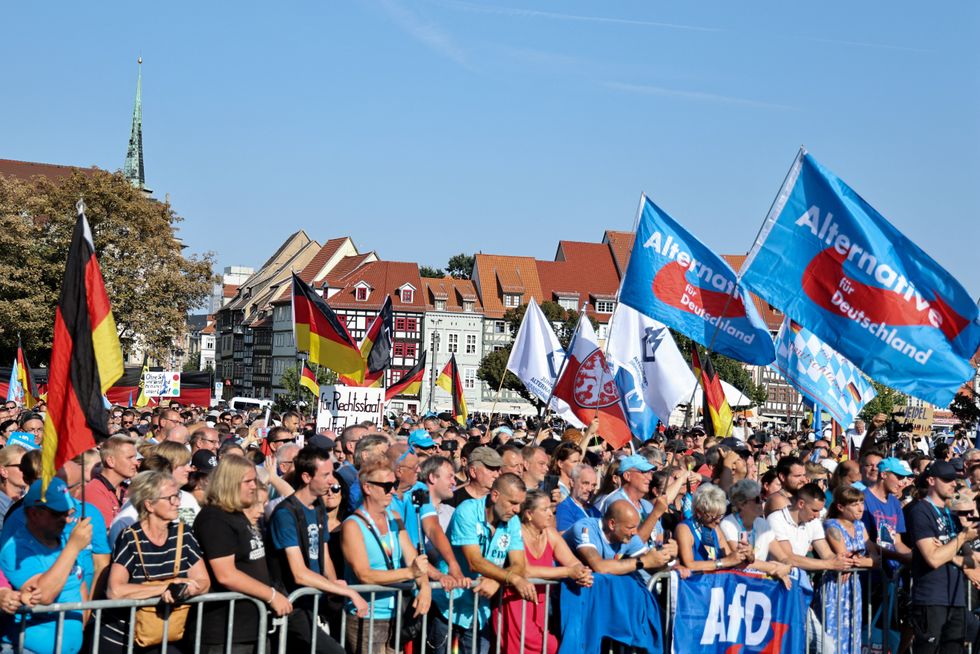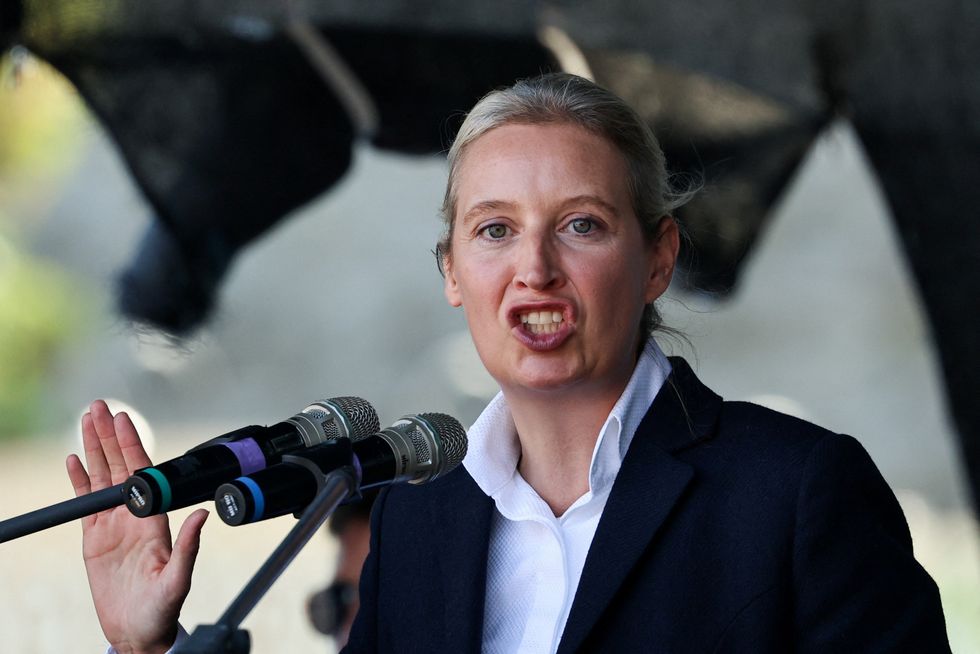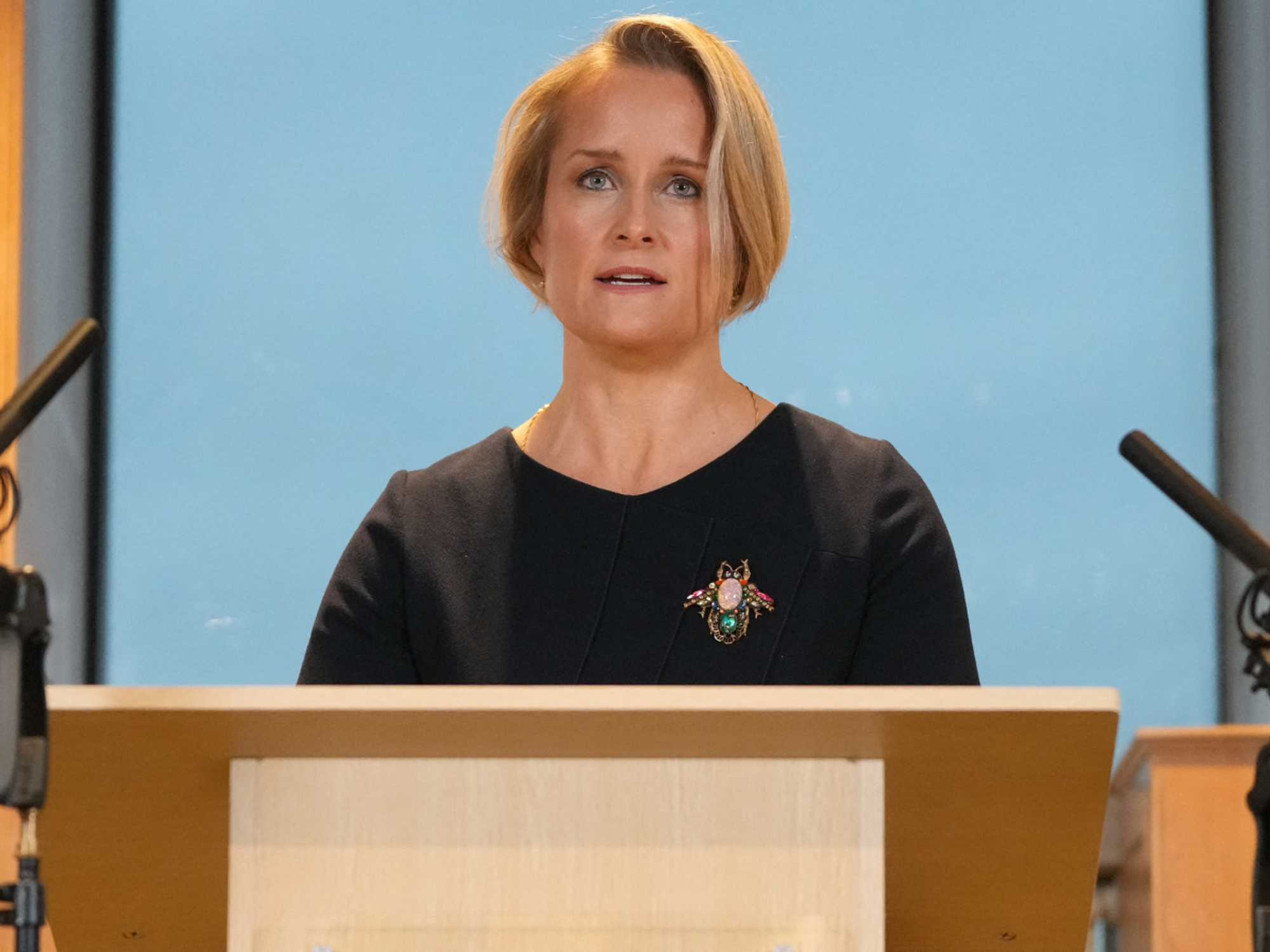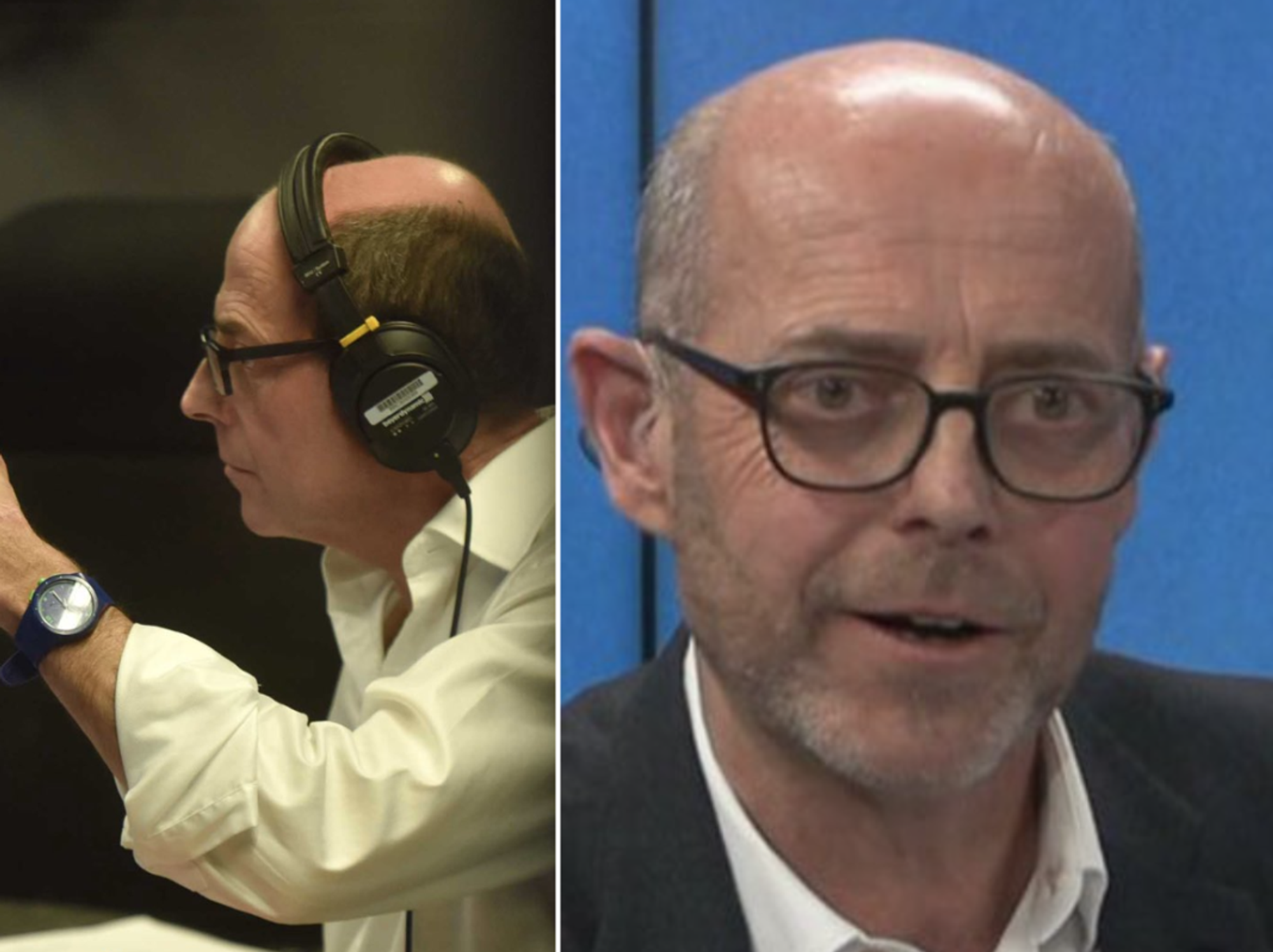How populism is rising in Germany as right-wing AfD make big gains in one generation in particular

The AfD won a third of the vote in the eastern state of Thuringia
|Reuters

The Alternative for Germany (AfD) party has seen gains among young people in Thuringia and Saxony
Don't Miss
Most Read
Germany's right-wing, populist party Alternative for Germany (AfD) is celebrating a "historic success" after winning a regional vote in the east of the country Sunday.
The AfD won almost a third of the vote in the eastern state of Thuringia and finished a close second in Saxony.
The AfD were nine points ahead of the conservative CDU and far in front of Germany's three governing parties.
However, despite the AfD's strong performance, the party is unlikely to take power as all other parties who appeared to win seats have previously refused to govern in coalition with the AfD.

People gather at an election campaign rally of Alternative for Germany (AfD) party ahead of the Thuringia state elections
|Reuters
Despite this, in Thuringia, the party has more than one-third of the seats meaning it could block certain decisions such as the appointment of judges to the state constitutional court.
The AfD also performed well in the more populous neighbouring state of Saxony where it was a close second behind the CDU.
The CDU, best known as the party led by ex-Chancellor Angela Merkel and has governed Saxony since German reunification more than 30 years ago, secured 31.9 per cent of the vote.
But, support for the AfD is not confined to the country's east as the party has enjoyed rising support in a few west German states.
In 2023, the AfD won 14.6 per cent of the votes in Bavaria and 18.4 per cent in Hesse.
The AfD is also poised to do well in a third German state, Brandenburg, which will have its election on September 22.
On the morning of Sunday's elections, AfD co-chair Alice Weidel signalled that the vote in these former Eastern states sends a message to the nation as a whole.
She said: "You won’t only change Saxony and Thuringia’s future, but bring political change across Germany!"
The AfD's top candidate in Thuringia, Björn Höcke, also hailed the results as a "historic victory" and spoke of his great pride.
Höcke has been convicted of knowingly using a Nazi slogan at political events, although he denies doing so.
When it was pointed out that Germany's domestic intelligence has his local party branch under official surveillance as a "proven right-wing extremist" group Höcke responded: "Please stop stigmatising me. We are the number one party in Thuringia.
"You don't want to classify one-third of the voters in Thuringia as right-wing extremists."
The AfD's success was expected after it made headway in these same states in recent elections.
In 2019, Saxony witnessed a rapid rise in AfD support having received 27.5 per cent of the vote and experienced a similar political climb in Thuringia.

Germany's Alternative for Germany (AfD) party co-leader Alice Weidel said the election could "bring political change across Germany"
|Reuters
LATEST FROM MEMBERSHIP:
The AfD's gains were especially large among young voters in both states, according to initial survey data.
In Thuringia, the party finished first with 37 per cent among 18-24-year-olds, which is an increase of almost 20 per cent compared to the previous state election in 2019.
Meanwhile, in Saxony, the AfD won 31 per cent of voters in that age group, which is also an increase of 14 percentage points compared to 2019.
According to pre-election surveys, migration was one issue troubling voters with respondents in Thuringia and Saxony citing it as among their top three concerns alongside crime and "social protection."
A survey for German public television found that 81 per cent of voters also agreed with the statement: "We need a fundamentally different asylum and refugee policy so that fewer people come to us."
The vote on Sunday followed a deadly knife attack earlier that week in the western German city of Solingen where a Syrian man suspected of being a member of the Islamic State was accused of killing three people and injuring several more.
Eastern voters feel they are being neglected by traditional parties more than three decades after national reunification.
Prof André Brodocz, a political scientist at the University of Erfurt in Thuringia, said: "The AfD has built up a core base [in the east] that now votes for it out of conviction, not just owing to frustration with the other parties."










